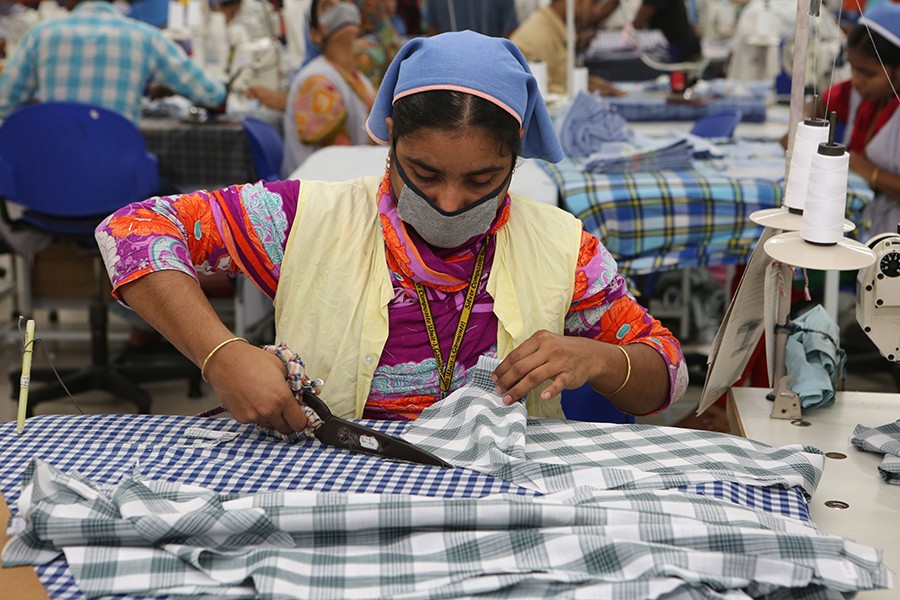Japan has raised its voice over providing incentive packages only to domestic apparel manufacturers, as such facility has created discrimination between the local clothing units and the foreign-owned units operating in the export processing zones (EPZs).
To ensure equal treatment of the EPZ factories and the local producing units, the country has requested the government to provide such incentives to the EPZ factories too.
Japanese Ambassador in Dhaka Ito Naoki recently sent a letter to the Ministry of Finance (MoF), requesting it to take measures to ensure a level-playing field for all investors.
Currently, the local apparel exporters enjoy a 4.0 per cent cash incentive against their exports to non-traditional or new market destinations - the countries outside the EU, the US and Canada.
Only "Type C" companies (100 per cent Bangladesh-owned and resident in Bangladesh) in the EPZs are entitled to get the incentive.
However, "Type A" companies (100 per cent foreign-owned - including Bangladeshi nationals ordinarily residing abroad) and "Type B" companies (joint venture between foreign and Bangladeshi entrepreneurs residing in Bangladesh) in the EPZs are not eligible to get the facility, noted the letter.
The Bangladesh-Japan Public Private Joint Economic Dialogue (PPED) stocktaking meeting on August 4 discussed the issue along with a number of investment challenges faced by the Japanese companies in Bangladesh.
The letter added that the cash incentive on garment exports to the new markets is one of the issues, which is yet to be solved.
The island country appreciated the Bangladesh government's decision to provide cash incentives worth 1.0 per cent of the garment export value to all types of companies across the board.
However, the discrimination between domestic and foreign companies still remains. Only "Type C" companies are eligible for the additional 4.0 per cent cash incentive.
If the 4.0 per cent cash incentive is also provided to "Type A" and "Type B" companies, exports to the new markets, including Japan, will definitely grow. Besides, Japanese companies will be further encouraged to increase their investment in Bangladesh, according to the letter.
The ambassador said, "The government of Bangladesh will be required to phase out cash incentives for export."
"If the cash incentive is reduced in stages, the government will be able to set the incentive at 2.0 per cent for all types of companies - to make the facility non-discriminatory between domestic and foreign companies."
The measure means to reduce the cash incentive for "Type C" companies from 5.0 per cent to 2.0 per cent, and temporarily increase it for "Type A" and "Type B" companies to 2.0 per cent.
The Japanese companies concerned can make use of the 2.0 per cent incentive for their further recruitment, wage increase, and skills development, he mentioned.


